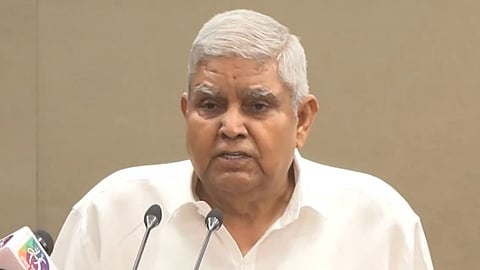Vice-President of India Jagdeep Dhankhar on Monday continued with his criticism of the judiciary, this time denouncing the involvement of the Chief Justice of India (CJI) in the appointment of the Director of the Central Bureau of Investigation (CBI).

